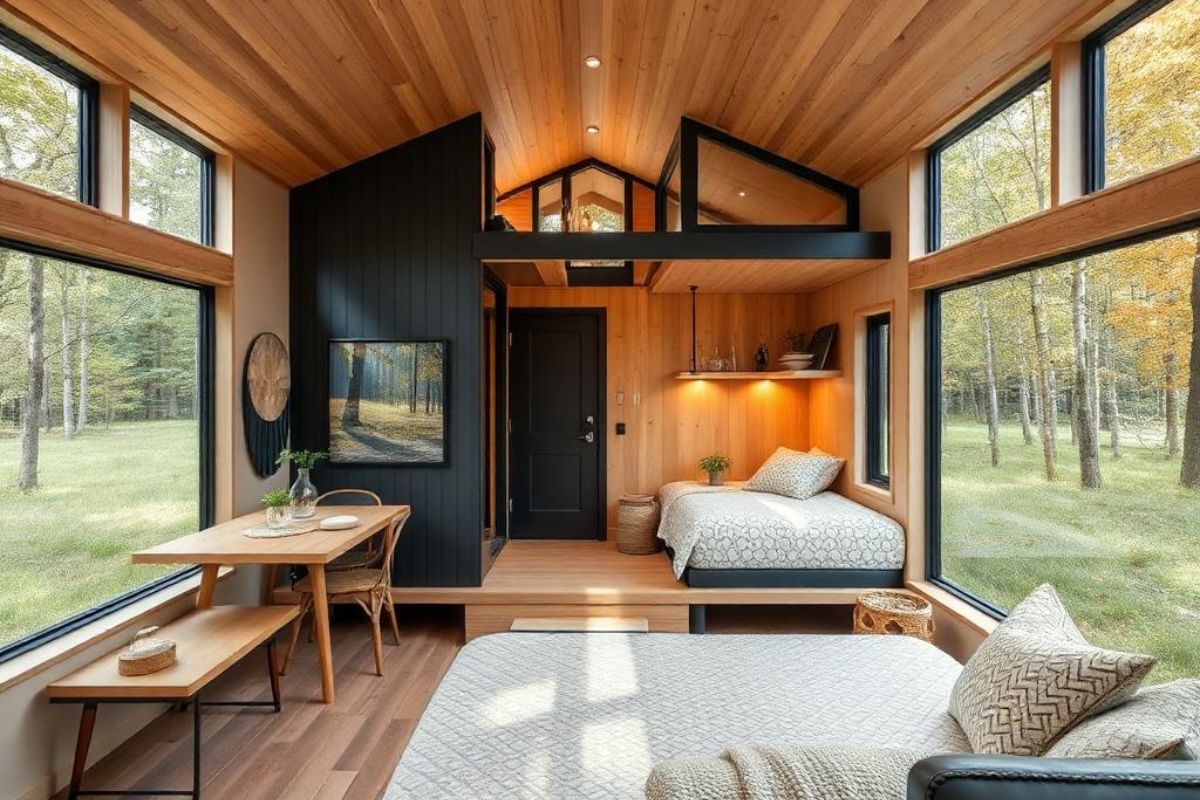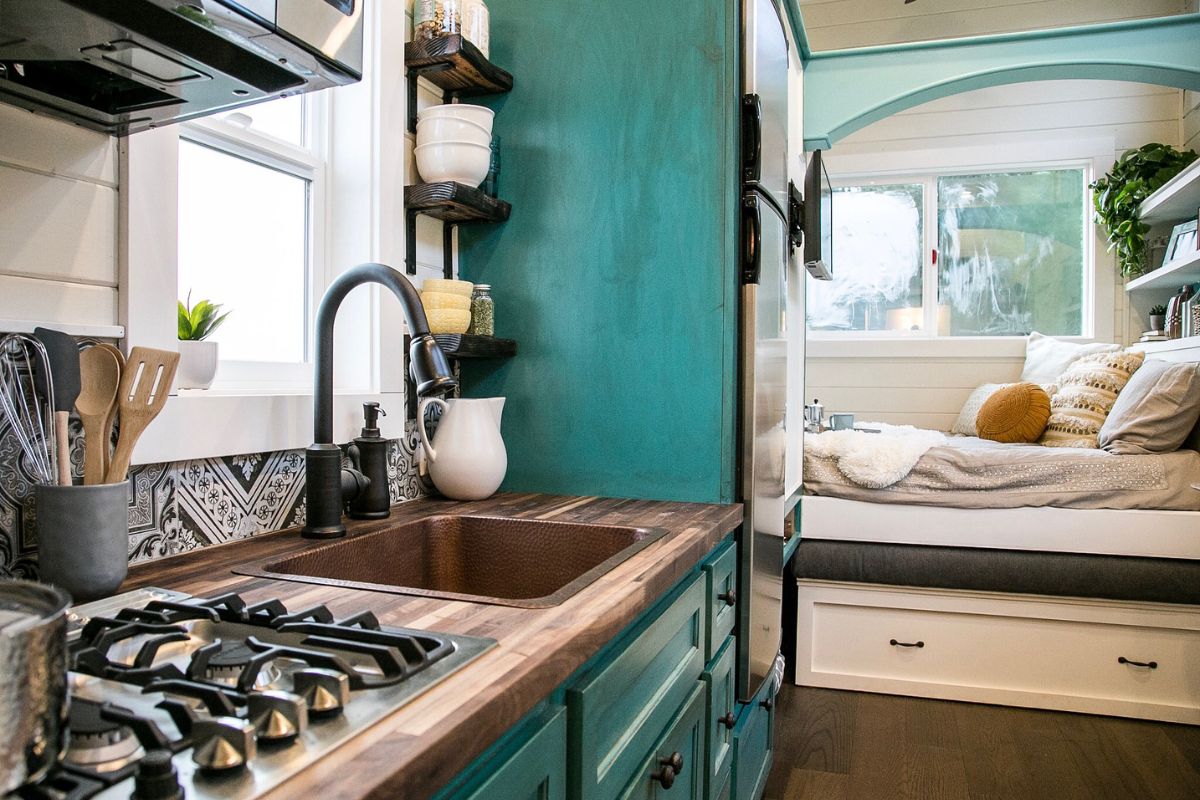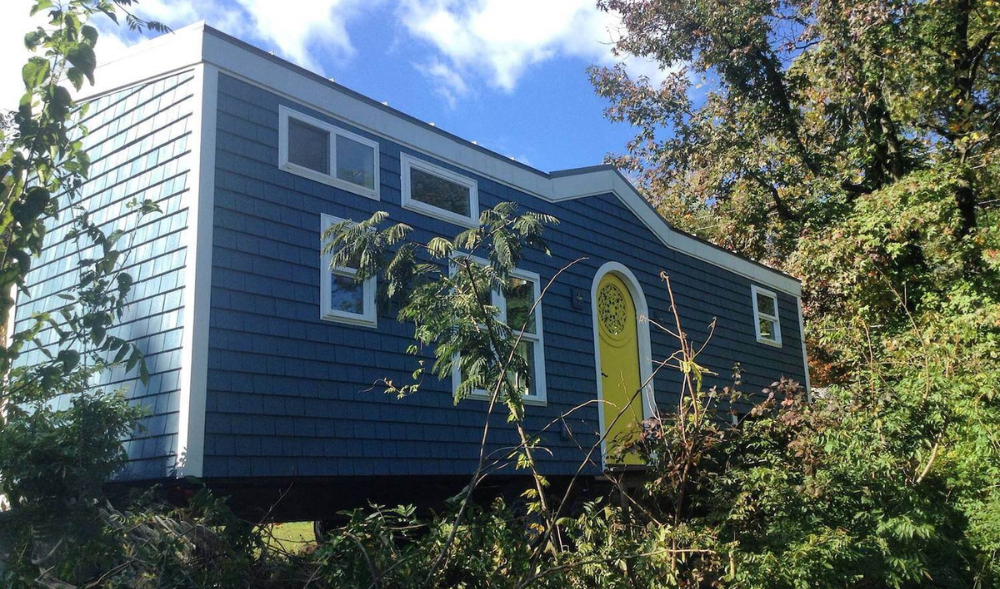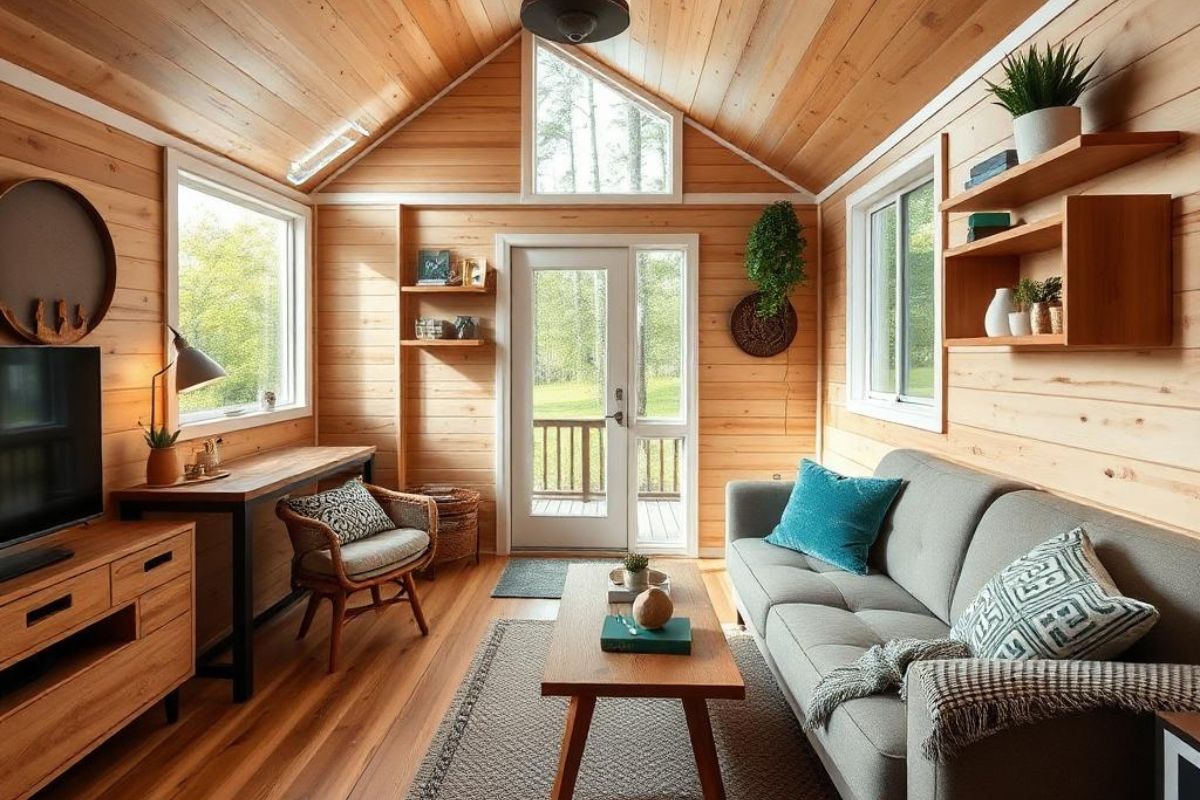A clean floor in a tiny home is essential - just a little dirt can make the whole space feel untidy.
Why Cleaning in a Tiny Home Is More Complex Than It Seems
Tiny homes represent a shift toward simplicity and intentional living. But when it comes to upkeep, especially cleaning, they present a unique set of complications that catch many homeowners off guard. With less space comes the need for greater discipline and smarter strategies to maintain comfort and cleanliness.
If you’re finding it difficult to stay ahead of the mess in your tiny space, you’re not alone. Sometimes, the smartest way to manage your home is to bring in support. Cleaning services like Calibre Cleaning specialize in helping people keep compact homes in top condition with thorough, tailored cleaning solutions.
In larger homes, it’s easy to overlook a smudge on a window or a few dishes left in the sink. In a tiny home, there’s nowhere for mess to hide. Even a few crumbs or stray items can make the space feel cramped or chaotic. That sense of visual overload affects your comfort, productivity, and peace of mind—making professional help from CP Cleaning Services Westchester a smart solution.
Small Messes Create Big Disruption
In larger homes, it’s easy to overlook a smudge on a window or a few dishes left in the sink. In a tiny home, there’s nowhere for mess to hide. Even a few crumbs or stray items can make the space feel cramped or chaotic. That sense of visual overload affects your comfort, productivity, and peace of mind.
Maintaining a clean tiny home means addressing issues as soon as they arise. It’s less about deep cleaning once a week and more about staying consistently on top of the small things before they pile up.

Poor Ventilation Amplifies Everyday Smells and Moisture
Many tiny homes are built for energy efficiency, which often means they’re airtight. Without sufficient ventilation, daily activities like cooking and bathing cause moisture to accumulate. The result is lingering odors, mold growth, and a generally stale atmosphere.
Opening windows can help, but it’s not always enough. Exhaust fans and dehumidifiers become essential, particularly in kitchens and bathrooms. If moisture issues persist, a deep clean targeting mold-prone areas may be needed to reset the environment.
Clever Storage Often Gets Neglected
Tiny homes rely on ingenious storage solutions like lofted shelves, drawers under beds, and concealed cabinets. These spots are essential, but they also become dust magnets. Because they’re tucked away, it’s easy to forget about them until clutter builds up or an odor alerts you to a deeper issue.
Make a habit of rotating through your hidden storage areas. Check them regularly, clean surfaces inside, and ensure airflow to prevent mildew. These spaces work best when they’re kept fresh and functional.

Compact Appliances Require Extra Attention
Space-saving appliances are common in tiny homes, but they often come with trade-offs. Small sinks get crowded quickly. Mini fridges can leak or frost over. Compact stoves may not have sufficient ventilation. With daily use, grime accumulates faster and becomes more noticeable.
Staying on top of these items is crucial. Wipe surfaces after each use, and don’t wait too long between cleanings. If buildup starts to affect performance or hygiene, a detailed appliance clean from a professional can help restore order.
Overlapping Spaces Spread Mess Quickly
In a tiny home, a single surface might serve as a dining table, work desk, and craft area. These multipurpose zones become mess transfer hubs. A spill in one context quickly affects everything else. Dirt, crumbs, and clutter don’t just build up. They travel.
Clear boundaries, even if visual, help control this spread. After finishing an activity, reset the space so it’s ready for its next purpose. It may feel tedious at first, but this habit maintains hygiene and mental clarity in a shared space.
Entryways Are High-Risk Zones
Without designated mudrooms or spacious entry halls, everything from the outside world enters directly into your living space. Shoes, bags, and pets carry in dust, dirt, and bacteria. These particles don’t just linger near the door. They quickly distribute across floors and furniture.
Creating a simple transition area near the door is key. Drop mats, hangers, or even a shallow tray can contain outside mess. This small habit protects your floors and cuts down on daily cleaning.
Mental Load of Cleaning Feels Heavier
In a small home, untidiness isn’t just inconvenient. It’s psychological. When every inch of your living space is visible at all times, the mental weight of keeping it clean can feel relentless. Even small messes become visual noise.
Developing a rhythm of light cleaning routines can help. Divide your day into short resets: wipe down the counter after breakfast, fluff cushions in the afternoon, and sweep in the evening. It’s not about perfection, but peace of mind.
Moisture Can Cause Long-Term Damage
When a space is this compact, steam from a shower or boil from the stove doesn’t have much room to dissipate. That moisture seeps into walls, under cabinetry, and even floors. Over time, this contributes to warping, decay, or insulation damage.
Airing out your home regularly and using moisture absorbers in key areas can prevent damage. If you suspect dampness has already taken hold, it’s wise to schedule a deep inspection and professional clean to get ahead of structural issues.

When It’s Time to Bring in Professional Help
There comes a point when the mess outpaces your routine. Maybe you’ve hosted guests, been away for a while, or just feel burnt out. A professional cleaning service can provide a complete reset, handling everything from stubborn stains to hidden mold or dust buildup.
Calibre Cleaning offers customized services designed for small, high-efficiency homes. They understand the dynamics of tiny living and can help you maintain a clean, comfortable space that supports your lifestyle, not stresses it.
Final Thoughts on Keeping a Tiny Home Clean
Tiny home living offers simplicity, but not without its trade-offs. The very thing that makes these homes appealing, their compact footprint, also makes them demanding when it comes to cleanliness. With some intentional habits and occasional professional help, you can stay ahead of the mess.
When cleaning starts to feel like a full-time job, remember that you don’t have to handle it alone. Sometimes, the best strategy is knowing when to ask for help. Your tiny space deserves the same care as any other home, just in a more concentrated form.






Share: